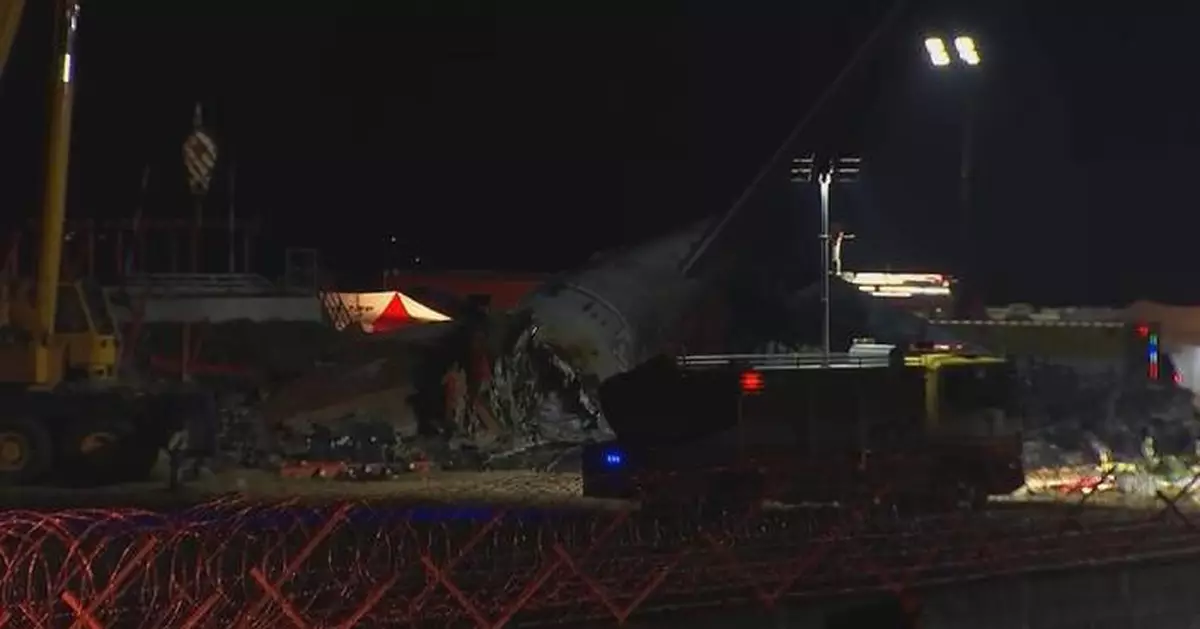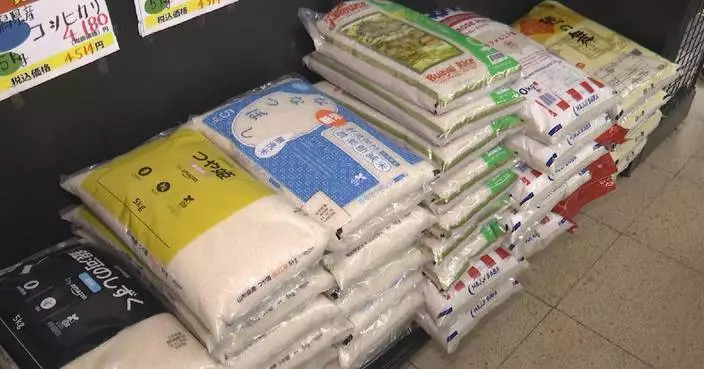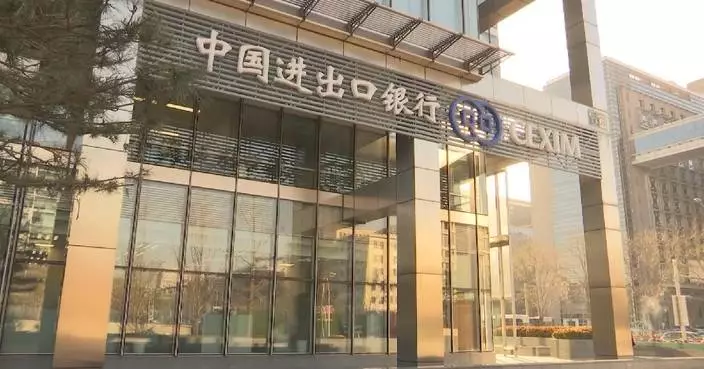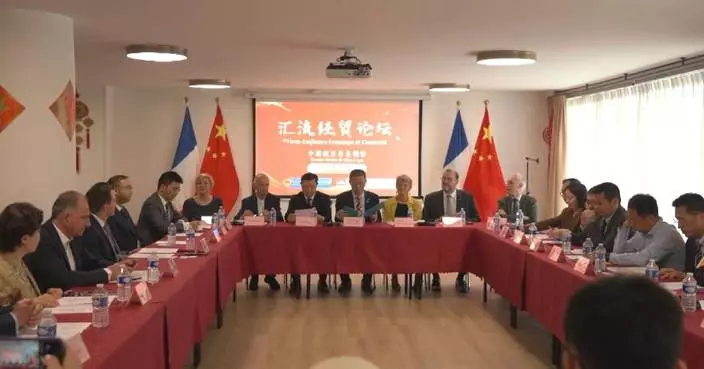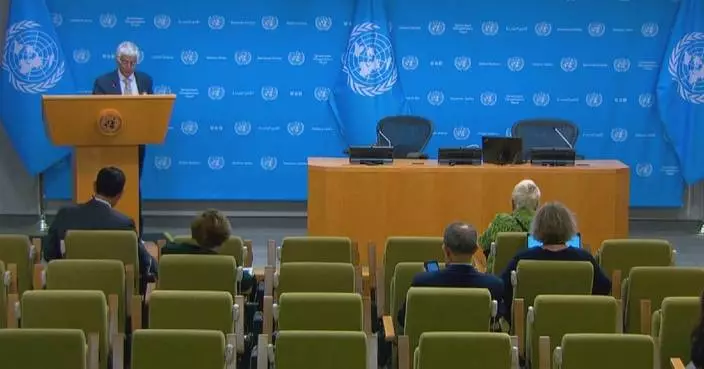The South Korean government said on Monday that 146 of the 179 victims of the country's deadliest air crash had been identified.
A Jeju Air jetliner returning from Thailand skid off the runway when attempting to land at South Korea's Muan International Airport on Sunday, killing 179 out of the 181 aboard.
According to the South Korean Ministry of Land, Infrastructure and Transport, 146 victims had been identified by 17:00 on Monday, while the DNA matching for 33 others is still underway.
Although the search and rescue efforts have come to an end, firefighters and police officers were still seen combing through the crash site in search of the items left by the victims.
Acting President of South Korea Choi Sang-mok said on Monday that the top priority is to identify the victims, provide support for their families and treat the injured. He also urged investigators to ensure transparency throughout the process and keep the victims' families well informed.
Choi required the Ministry of Land, Infrastructure and Transport to conduct an emergency safety inspection of the national airline operation system to prevent further aviation accidents from happening.
The ministry announced on Monday that it will conduct a comprehensive inspection of the 101 Boeing 737-800 airliners currently in operation in South Korea, which will be the first step in the emergency safety inspection.
The ministry said it had sent the two black boxes recovered from the crashed plane to the Gimpo Airport Testing and Analysis Center to determine whether data analysis could be conducted.
The ministry also said that it has launched a probe into the regulations concerning the construction of the concrete wall the jetliner crashed into and whether it is one of the causes of the accident.
Some experts believe that the accident's casualties could be reduced if the jetliner did not crash into the wall, as the plane was still under pilots' control when skidding down the runway, despite the emergencies it had during the landing.
The families of the victims on Monday requested the South Korean government to send more experts to the accident site to expedite the identification and recovery of the victims' remains, and provide more assistance to them.
They also demanded compensation from Jeju Air, which issued an apology to them on the day.
The U.S. National Transportation Safety Board (NTSB) said that it plans to send a team of experts to South Korea to participate in the investigation, while the jetliner's manufacturer, Boeing, also said it will participate in the investigation.
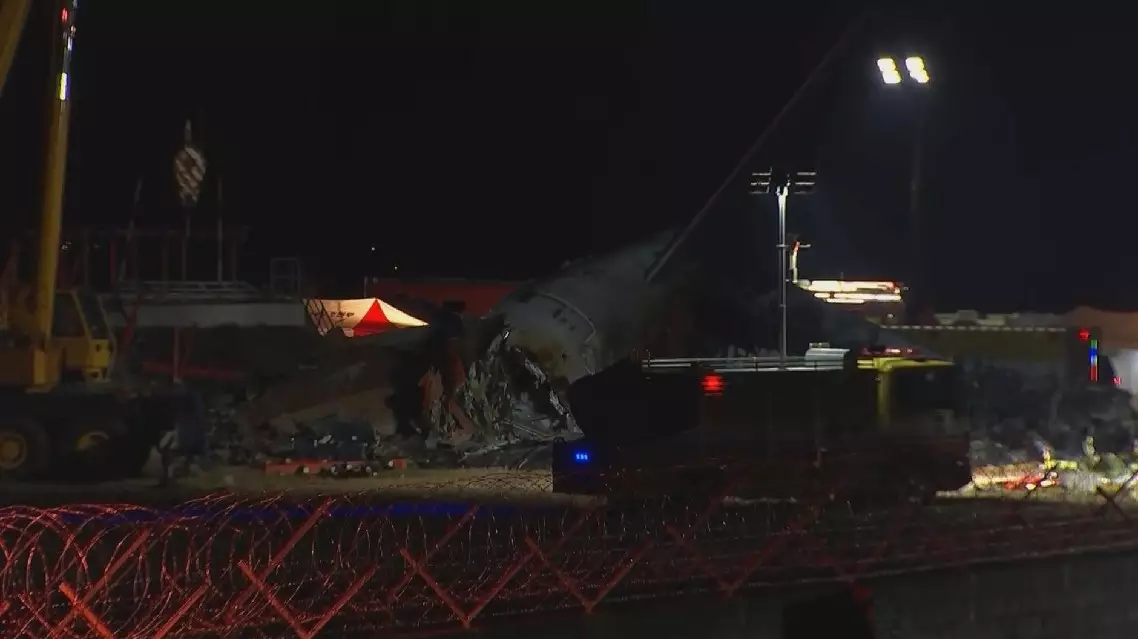
146 victims in South Korean plane crash identified
An amputee Palestinian journalist remains dedicated to uncovering and sharing the truth about life in the war-torn Gaza Strip, despite losing a limb after being targeted by an Israeli sniper.
Hazem Salman, a 27-year-old Palestinian journalist from Rafah, is currently displaced and lives in Khan Younis. He’s a freelance journalist who has spent the past 18 months documenting scenes of devastation and highlighting the dire humanitarian crisis unfolding in Gaza.
His reporting blurred the line between observer and participant, as the dangers he documented have become part of his own story.
"On July 3, 2018, I was injured on the eastern border of Gaza City, specifically east of the Shuja'iyya neighborhood, by an Israeli sniper. That targeting did not weaken me, it only strengthened my resolve and determination to continue conveying the truth and the reality on the ground. Even if I am targeted again, I have already lost my leg for the sake of journalism, to bring the image, truth, and suffering from the heart of Gaza, so the world knows Gaza is facing genocide," said Salman.
Salman's personal ordeal is not an isolated case but part of a broader pattern of threats faced by journalists in Gaza, where the line between reporting and endangerment grows increasingly thin.
"Every time I hear a drone at night, or the sound of helicopters or quadcopters, I feel as if the moment has come, that I could be targeted just like my fellow journalists. The targeting of journalists is a systematic policy by the Israeli occupation to erase the image and bury the truth. But I, along with my fellow journalists, remain committed to this mission, to the path of the martyrs and their sacrifices, until the very last day, even if we are all targeted," he said.
That commitment to truth-telling drives his actions on the ground, even amid constant danger and immense physical challenges.
"I follow events closely and head to strike sites on my bicycle to report the truth and deliver the image, despite the difficulties of moving around on a bike under current conditions. Streets are destroyed. Residential areas are devastated. And I face many obstacles while getting around. Sometimes, the targeted location is three or four kilometers away, and its exhausting to reach it because I'm on a bike," said Salman.
Beyond the field, the weight of responsibility doesn’t ease. Salman returns from documenting destruction to face the daily demands of life in the enclave, where his role as a journalist is matched by his role as a sole provider.
"As for my family situation, I am the only one they can rely on. I try to balance family life with journalism under extremely difficult circumstances. When I'm out working, there is no one to take my place in doing household tasks, fetching water, and buying things from the market. If the tarp gets torn, I have to fix it. If a wire gets damaged, I have to repair it. Even when I'm late, they can't switch the batteries for the lighting at night. They know I'm the one responsible for that, and I must be there. My family depends on me for many things," he said.
Despite the heavy responsibilities, he strives to bring moments of normalcy and comfort to his family amid the chaos surrounding them.
"I try to ease their burden however I can. I show the children videos from 'Toyor Al-Janah' or let them play games to distract them from the atmosphere of war and the sounds of bombing. A child should remember that their father, or their family, gave them something filled with hope, warmth, and a comforting embrace. That's what I try to provide in these difficult times, between the work of journalism and the demands of daily life," said Salman.

Amputee Palestinian journalist defies odds to expose Gaza’s reality



